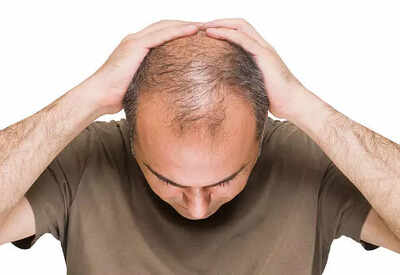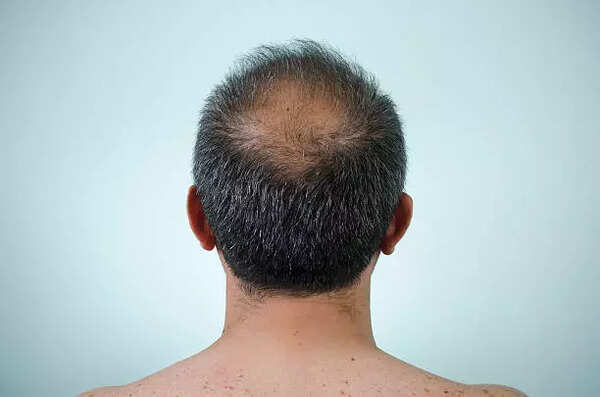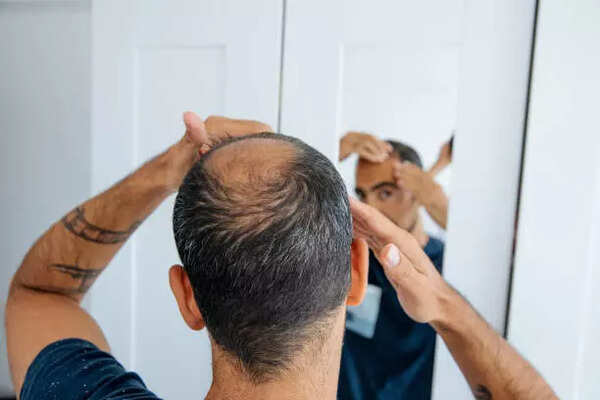
Thinning hair
, a widening part, or an ever-receding hairline can be alarming but what if your daily habits are contributing to the problem? While genetics and hormonal imbalances play a role in
hair loss
, many people unknowingly sabotage their own
scalp health
with avoidable mistakes. From poor grooming routines to harsh styling choices, here are the common hair care blunders that could be accelerating hair fall and what to do instead.
Overwashing your hair
Washing your hair too often can strip it of its natural oils, leaving both your scalp and strands dry and brittle. This can lead to increased breakage, and in severe cases, can damage hair follicles over time. While oily scalps may require more frequent cleansing, for most people, washing 2-3 times a week is sufficient.

Fix: Use a sulphate-free, gentle shampoo, and limit washes to alternate days unless you have a specific scalp condition. Incorporate nourishing conditioners and weekly oil massages to replenish lost moisture.
Tight hairstyles that tug on roots
Ponytails, buns, braids, and cornrows that pull tightly on your hairline may look sleek, but they can cause a form of hair loss called traction alopecia. The constant tension weakens the hair follicles and can eventually lead to permanent damage if continued over time.
Fix: Opt for looser hairstyles, especially when sleeping or working out. Switch up your part regularly and give your hair a break from tension-heavy styles whenever possible.
Heat styling without protection
Regular use of straighteners, curling irons, or blow dryers at high temperatures can cause the hair shaft to weaken, become brittle, and break. If you’re using heat daily without a thermal protectant, you may be fast-tracking your way to noticeable hair thinning.
Fix: Always use a heat-protectant spray or serum before styling. Keep tools at a medium heat setting and avoid going over the same section repeatedly. Try heat-free styling methods on off days.
Skipping scalp care
Many people focus on their strands but ignore the scalp—the very foundation for healthy hair growth. A clogged, dry, or inflamed scalp can reduce circulation and hinder the delivery of nutrients to hair follicles, contributing to hair fall and dullness.
Fix: Exfoliate your scalp once a week using a gentle scrub or exfoliating shampoo to remove product buildup, dead skin, and oil. Massage regularly to improve blood circulation and promote healthier follicles.
Crash dieting or poor nutrition
Your hair needs fuel to grow, and nutrient deficiencies, especially in iron, vitamin D, protein, and biotin—can trigger excessive shedding. Sudden weight loss or restrictive diets can shock your system, causing hair to enter the shedding phase prematurely (a condition known as telogen effluvium).
Fix: Ensure your diet includes plenty of leafy greens, lean protein, nuts, seeds, and fruits. If you’re vegetarian or vegan, consider supplements under medical supervision to meet your iron and B12 needs.
Brushing wet hair aggressively
Wet hair is particularly vulnerable, as it has increased elasticity and is more prone to breakage. Brushing or tugging at knots while it’s wet can stretch and snap the strands, leading to long-term thinning.

Fix: Use a wide-tooth comb or a detangling brush and start gently from the ends, working your way up. Apply a leave-in conditioner to ease detangling and prevent unnecessary pulling.
Using the wrong hair products
Not all hair products are created equal. Harsh shampoos with parabens, sulphates, and alcohols can irritate the scalp and dry out hair. Likewise, heavy styling products like gels and waxes can build up on the scalp and suffocate follicles over time.
Fix: Choose clean, dermatologically-tested products that suit your hair type and concerns. If you have a sensitive scalp or are noticing irritation, switch to a hypoallergenic or natural formulation.
Ignoring underlying health conditions
Hair loss can often be a symptom of deeper medical issues such as thyroid imbalances, PCOS, anaemia, or chronic stress. If your hair fall seems sudden or severe, don’t dismiss it as just a beauty issue.
Fix: Consult a dermatologist or trichologist if you experience prolonged shedding, bald patches, or scalp inflammation. A blood test may reveal deficiencies or hormonal imbalances that can be treated with the right medication or supplements.
Stress and lack of sleep
Mental health directly impacts physical health, and your hair is no exception. Chronic stress increases cortisol levels, which can interfere with the hair growth cycle and push more follicles into the shedding phase. Likewise, poor sleep quality hinders cellular repair and regeneration.
Fix: Incorporate stress-relief practices into your daily routine whether it’s yoga, meditation, journaling, or simply switching off devices before bed. Aim for 7–8 hours of quality sleep each night.
Delaying hair fall treatment
Many people wait too long to address their hair loss, hoping it will stop on its own. Unfortunately, early intervention is key. The longer you wait, the harder it becomes to regrow lost hair, especially if follicle damage has set in.
Fix: The moment you notice unusual hair fall or thinning, seek professional help. Treatments like minoxidil, PRP (platelet-rich plasma), or laser therapy work best when started early.
Curly hair: Common mistakes and how to avoid them
Hair loss can be distressing, but it’s not always irreversible. By avoiding these common hair mistakes and nurturing your scalp and strands with care, you can reclaim control over your hair health. Think of your hair as a garden, the more thoughtfully you tend to it, the more beautifully it will grow.












 English (US) ·
English (US) ·